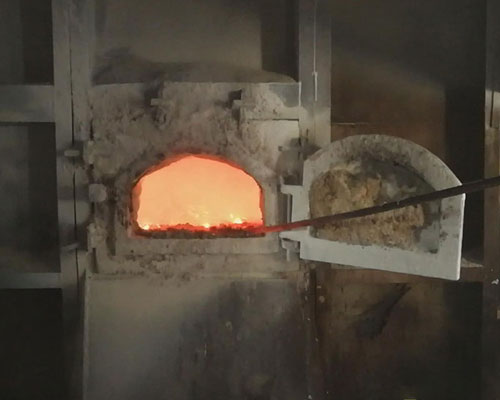Aluminum Refining Degassing: in the smelting process of aluminum alloy, refining flux is added to the furnace for degassing processing. In aluminum and aluminum alloy melts, refiners can remove metal impurities, oxides and other oxide inclusions from the melt by physical, chemical, or physicochemical interactions.
The harmful impurity elements will react with the refining flux to form compounds which can be separated from aluminum, and are carried into the refining slag and discharged by the adsorption of refining flux.
In the aluminum refining degassing and transportation process of molten metal, foreign matters such as scale, intermetallic compounds, and furnace debris are easily brought into the molten metal to form non-metallic inclusions. These nonmetallic inclusions are mainly oxide inclusions. According to the different forming time in melting and casting process, it can be divided into primary oxide inclusions and secondary oxide inclusions.

Primary oxide inclusions mainly refer to all oxide inclusions formed before pouring molten aluminum. The secondary oxide inclusions can be divided into two types according to their shapes: one is the large inclusions with uneven distribution in the macro structure. Some inclusions make the alloy structure discontinuous and reduce the air tightness of the workpiece. Corrosion. Reducing the strength and plasticity of aluminum alloy is often the root cause of parts cracks. The second type of oxide inclusions is small dispersed inclusions, which cannot be completely removed even after careful purification. It increases the viscosity of molten metal, reduces the feeding capacity of molten aluminum during solidification, and easily causes casting shrinkage.
Secondary oxide inclusions, also known as endogenous inclusions, are mainly formed in the casting process. Endogenous inclusions are usually more evenly distributed and have smaller particles. The turbulence of molten aluminum splashing during casting is the interaction between alumina in sand mold and water in molding sand, and water is decomposed into oxygen and hydrogen. Oxygen reacts with aluminum to form oxide inclusions and hydrogen decomposes molten aluminum.

